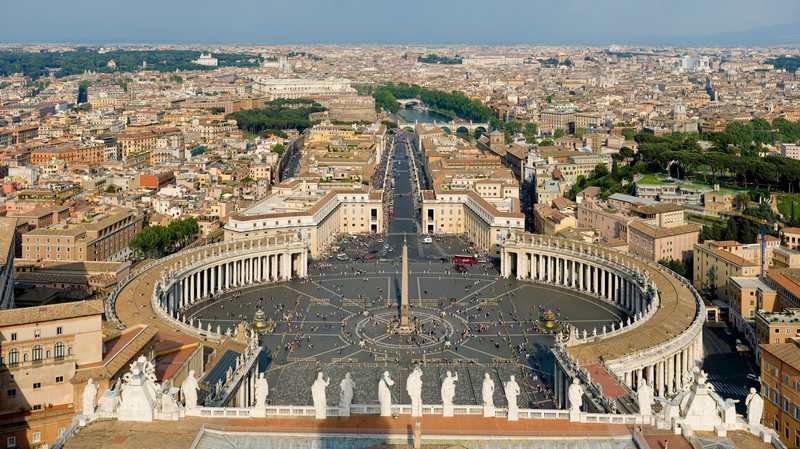                   |
The Catechism of the Catholic
Church states the following, "As a result the Church, to whom the
transmission and interpretation of Revelation is entrusted, 'does not
derive her certainty about all revealed truths from the holy Scriptures
alone. Both Scripture and Tradition must be accepted and honored with
equal sentiments of devotion and reverence.'"
Dei
Verbum, paragraph 9, as quoted in Paragraph
82 of the Catechism. Dei
Verbum (Dogmatic Constituion on Divine
Revelation) promulgated by Pope Paul VI on November 18, 1965.
Roman
Catholicism freely admits that it holds to Roman
Catholic Church traditions that, in its view, are equal in
authority to the Scriptures.
But that view does not square with Scripture. On Paul's
Second Missionary Journey, he and Silas entered the Jewish synagogue in
the town of Berea (Acts 17:10). Of these Jewish people and the
sympathetic Gentiles also attending, Luke, the author of the document,
stated the following, "Now these were more noble-minded than those in
Thessalonica, for they received the word with great eagerness,
examining the Scriptures daily to see whether these things were
so" (Acts 17:11). So God takes great approval in the most common person
in the pew who studies his Bible to see if what he is being taught
squares with Scripture.
This series of articles will
seek to demonstrate that only the Bible is inspired, and that only the
Bible is worthy of authority. The Bible trumps any and every church
tradition that cannot be proven from Scripture. The Bible trumps
tradition. Tradition never trumps the Bible.
Why bother? Why bother posting a series of articles that question the
validity of certain doctrines held by the Roman
Catholic Church? The answer is a Biblical one. Jude, evidently
along with James, a half-brother of our Lord (Matt. 13:55; Gal.
1:19), wrote this: "Beloved, while I was making every effort to write
you about our common salvation, I felt the necessity to write to
you appealing that you contend earnestly for the faith which
was once for all handed down to the saints" (Jude 1:3).
I take Jude's exhortation and example seriously. I believe I am obliged
to contend earnestly for the faith which was once for all handed down
to the saints.
Another motivation I have is this. I have encountered Christians who
used to be part of the Catholic
Church, but for one reason or another, had second thoughts. I have
an acquaintance who, several years ago, was a lay preacher in a
Protestant church. I was stunned to find out that he was formerly a Roman
Catholic. I asked him what made him change. His answer was simple,
yet profound, "I started reading the Bible."
If you find yourself having second thoughts about some of the things
you are being taught in the Catholic
Church, then this series of articles is meant for you. Just so you
know, I firmly believe that the Bible, not church tradition, is our
sole authority as Christians. Everything I say in these articles is
based on the Bible. No church tradition, regardless of whether it be Roman
Catholic tradition, Greek Orthodox tradition, or any strain of
Protestant tradition, is authoritative unless it is based solely on the
Bible. If a belief cannot be found in the Bible, it cannot be
authoritative. And just a reminder. One does not have to belong to the
church headquartered in the Vatican
to be part of the true,
universal, catholic church.
Let us begin our quest.
See also Comparative Theology: Items
Evaluating the Catholic Church
An excellent site for Catholics searching
for Biblical truth, not truth modified by 2000 years of Church Tradition...
Updated November 16, 2021
|
||


